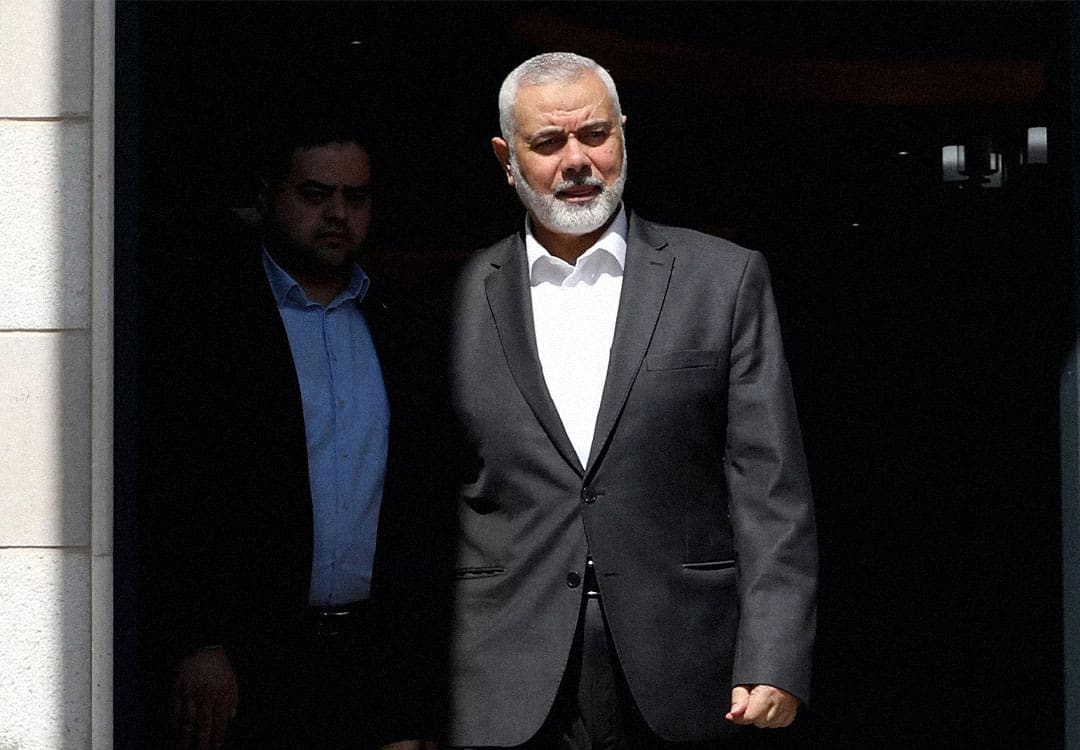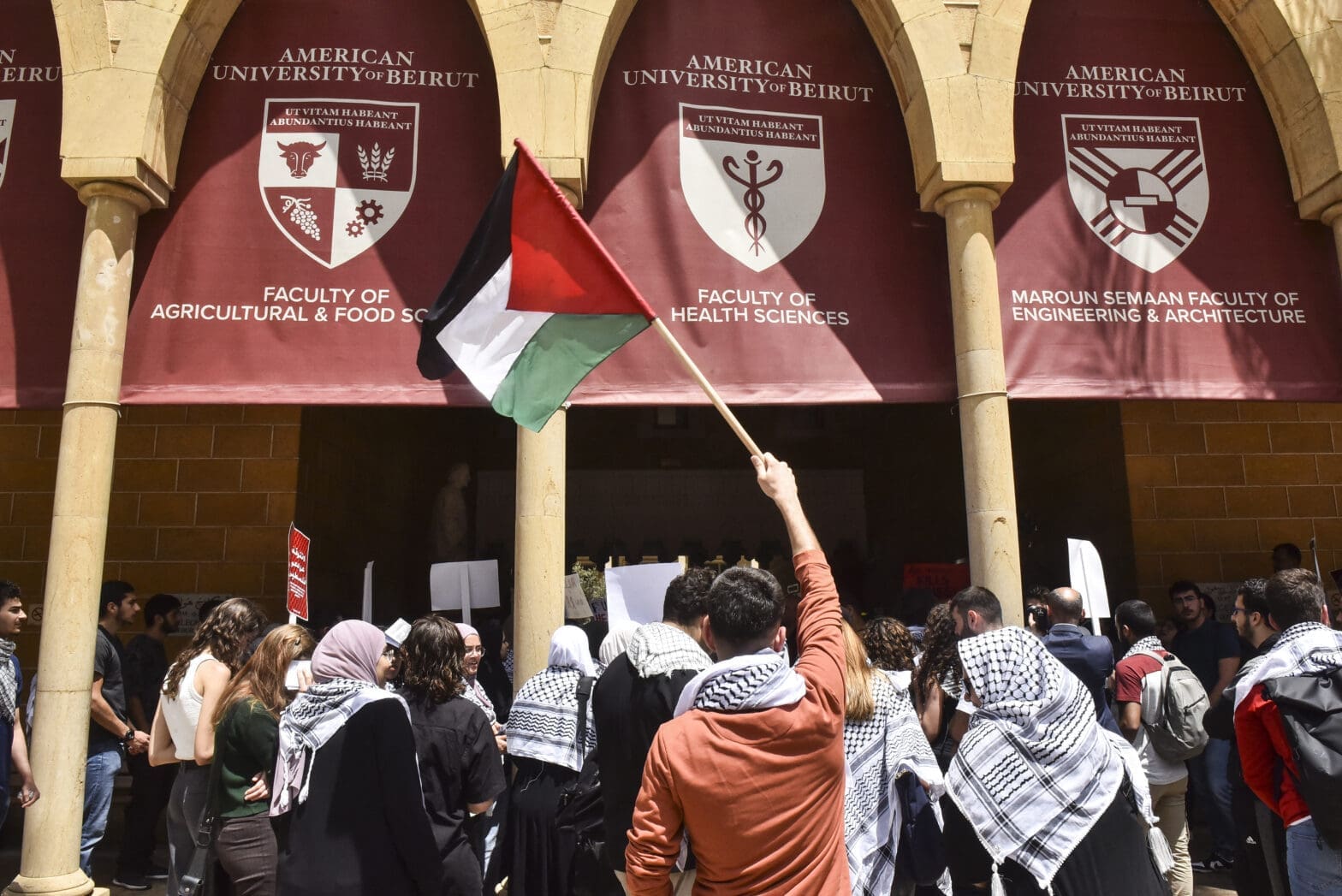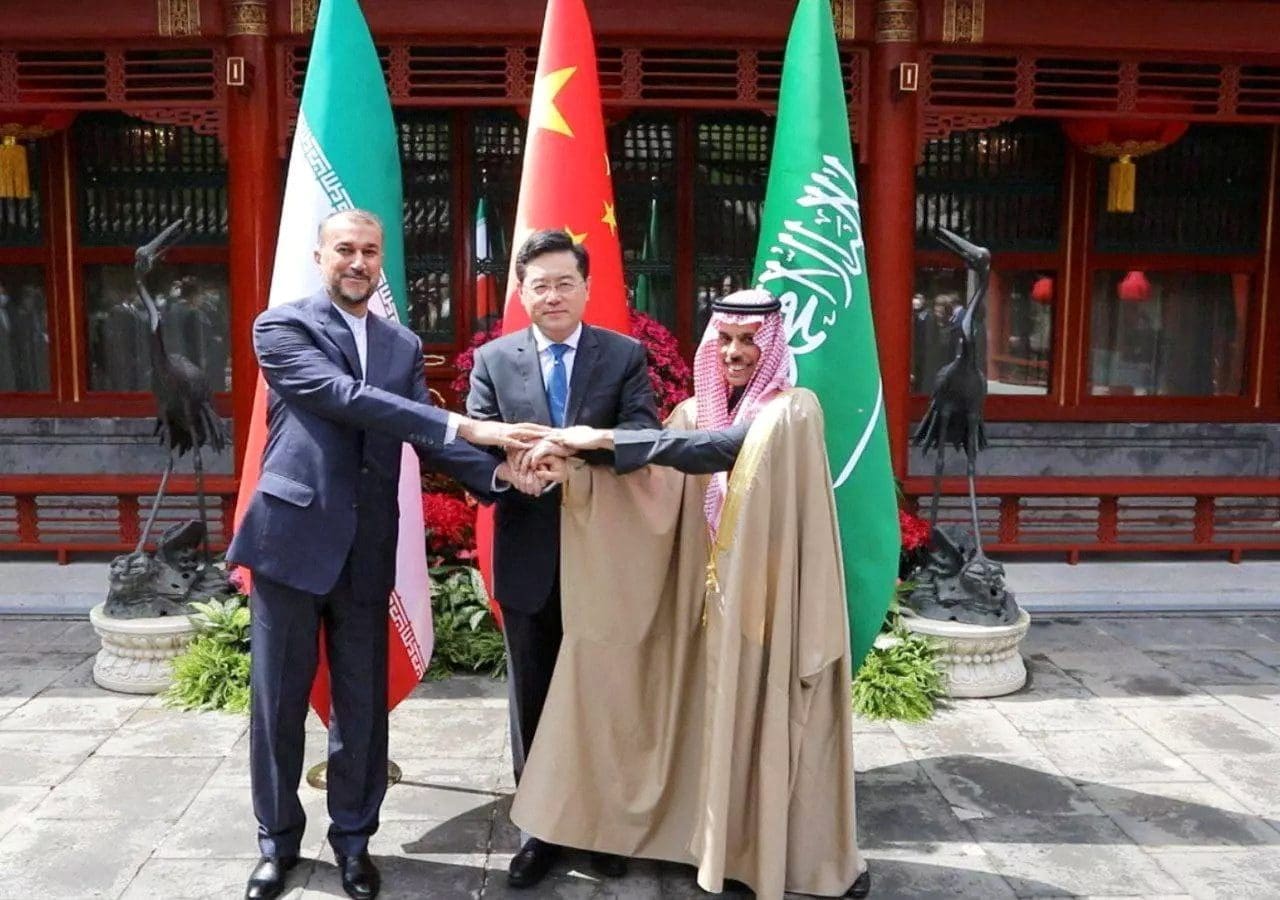When Lebanese President Joseph Aoun announced in October that his country was prepared to engage in indirect negotiations with Israel, it marked a rupture with decades of political taboo—and was a tacit admission of how precarious Lebanon’s position has become. The move was not in response to a sudden diplomatic opening. It reflected something more… Continue reading As War Looms, Lebanon Is Forced to Negotiate Under Fire
Afkar Country: Lebanon
Can Lebanon Disarm Hezbollah Without First Rebuilding the State?
Since August, the Lebanese Armed Forces (LAF) have been under instructions from their government to present—by year’s end—a plan to bring all weapons in the country under state control. The directive is mainly targeted at Hezbollah, the Shia-led militia that had in recent years grown more powerful than the national army. Yet for decades, Lebanon’s… Continue reading Can Lebanon Disarm Hezbollah Without First Rebuilding the State?
With Lebanon and Syria in Political Flux, Can They Forge A New Relationship?
Post-Assad Syria is searching for its place in Lebanon. Since assuming the presidency in January, President Ahmed al-Sharaa has been keen to emphasize that the Syria of today differs from the one under the Assad regime, which managed affairs in Lebanon for decades through security agencies and local allies. The new administration is seeking to… Continue reading With Lebanon and Syria in Political Flux, Can They Forge A New Relationship?
As Pressure Mounts, Can Lebanon Handle Hezbollah’s Disarmament?
The recent visit of U.S. special envoy Tom Barrack to Beirut has revived the perennial question of Hezbollah’s fate were it to give up its arms. Three weeks after handing the Lebanese government a letter demanding it take immediate steps to disarm the group, Barrack presented a roadmap for implementation that offers Beirut a window… Continue reading As Pressure Mounts, Can Lebanon Handle Hezbollah’s Disarmament?
Israel Applies Its Lebanon Playbook to Iran in Opening Salvo
In the early hours of June 13, Israel launched a large-scale aerial offensive against multiple military and nuclear-related targets inside Iran. Dubbed “Operation Rising Lion”, the strikes targeted senior military commanders, nuclear scientists, air defense infrastructure and suspected ballistic missile facilities. Israel has framed the campaign as a necessary measure to halt Iran’s advancing nuclear… Continue reading Israel Applies Its Lebanon Playbook to Iran in Opening Salvo
The First 100 Days: Trump’s Middle East Policy Revisited
By any standard of the American presidency, the first 100 days of Donald Trump’s second term have been eventful, to say the least. From the dismantling of government institutions to the imposition of protectionist trade policies to the launching of negotiations with Iran and Russia, the implications of Trump’s early agenda have been far reaching… Continue reading The First 100 Days: Trump’s Middle East Policy Revisited
As Trump Imposes Tariffs, What Will U.S. Protectionism Mean for MENA and the Global Economy?
The United States has long been the world’s leading advocate for free trade, promoting it as a means of expanding global commerce and specialization in production that links economies into diversified supply chains. This has led to an unprecedented period of economic growth and poverty alleviation, a period anchored largely in an international rules-based order… Continue reading As Trump Imposes Tariffs, What Will U.S. Protectionism Mean for MENA and the Global Economy?
With a New Government in Charge, a New Era in Lebanon Beckons
The nomination of Nawaf Salam as Lebanon’s new prime minister alongside Joseph Aoun as president, after more than two years of political vacuum, is a momentous occasion heralding a new era for Lebanon. It can be an historical opportunity akin to the 1989 Taif Agreement, which formed the basis of ending Lebanon’s 15-year civil war… Continue reading With a New Government in Charge, a New Era in Lebanon Beckons
MENA Outlook for 2025
With the December collapse of the Assad regime in Syria, 2024 came to a close in a dramatic and region-altering fashion. This, along with the numerous other major trend lines and points of conflict, likely makes 2025 a year that will be significant in reshaping the region’s future. Looking forward to what may be coming,… Continue reading MENA Outlook for 2025
With Axis of Resistance in Retreat, How Will Iranian People Respond?
Iran’s regional policy is on the backfoot. Years of patronage and investment in the “Axis of Resistance,” a network of friendly actors that share Iran’s hostility toward U.S. hegemony in the Middle East, has unraveled in a short period of time and caught the Iranian regime off guard. While Iran’s leadership scrambles for a response,… Continue reading With Axis of Resistance in Retreat, How Will Iranian People Respond?
Regional Economy Faces Plenty of Challenges—and Reasons for Hope—in 2025
Despite the turmoil rocking the Middle East and North Africa (MENA), there may be some glimmers of hope for the region’s economies in 2025. The World Bank and the International Monetary Fund (IMF) are both projecting an uptick in growth in most MENA economies. However, structural challenges, political instability, and geopolitical tensions will continue to… Continue reading Regional Economy Faces Plenty of Challenges—and Reasons for Hope—in 2025
Arab Public Opinion Under Pressure
Editor’s Note The relevance of public opinion in the Middle East and North Africa is a question often debated but little understood. Given the high prevalence of autocracy, surveys of popular sentiment are limited, while freedoms of speech and press are not the norm. Indeed, as thousands of political prisoners freed in recent days from… Continue reading Arab Public Opinion Under Pressure
Can the Israel-Hezbollah Ceasefire Hold?
After more than a year of hostilities that intensified dramatically in recent months, Hezbollah and Israel have agreed to a ceasefire, but the fragile agreement has already been tested by reported violations. In this interview with Afkār, Saoud El Mawla, visiting senior fellow at the ME Council, examines the deal’s significance and durability, as well… Continue reading Can the Israel-Hezbollah Ceasefire Hold?
Trump Must Focus on Rebuilding a War-Torn Middle East
U.S. President-elect Donald Trump has become the first Republican candidate in 20 years to win the popular vote. His historic win hands him control of the Senate, Congress and the Republican party, along with a strongly conservative-leaning Supreme Court. How will this power be deployed? If we take Trump’s election rhetoric literally, his “Maganomics” agenda will be… Continue reading Trump Must Focus on Rebuilding a War-Torn Middle East
Trump’s Return and Implications for the Middle East
On November 6, within hours of closing the polls, Donald Trump was declared the winner of the 2024 presidential election in the United States, defeating Vice President Kamala Harris by a wide margin. Trump’s remarkable triumph, which will return him to the White House after his defeat to Joe Biden in 2020, comes at a… Continue reading Trump’s Return and Implications for the Middle East
Adapting the Women, Peace and Security Agenda to the Arab World
When United Nations Security Council (UNSC) resolution 1325 on Women, Peace and Security (WPS) was adopted on October 31, 2000, it marked an unprecedented commitment by the international community to regard women as integral partners in peace processes. The WPS “agenda,” as it came to be known, encompasses ten UNSC resolutions that recognize the devastating… Continue reading Adapting the Women, Peace and Security Agenda to the Arab World
Lebanon Conflict Will Only Exacerbate Existing Economic Crisis
A major humanitarian crisis is unfolding in Lebanon. Israel’s attacks have exacted a heavy toll with over 2,000 people killed and 9,000 wounded. The last two weeks have wreaked severe damage on core infrastructure, public utilities, water, sanitation, power and roads. The country’s health system has also been degraded. Much of Beirut’s Dahiyeh and South Lebanon stands… Continue reading Lebanon Conflict Will Only Exacerbate Existing Economic Crisis
A Region Under Fire
Editor’s Note: There Are No Winners Here Omar H. Rahman, Fellow and Editor of Afkār, Middle East Council on Global Affairs The Israeli-Palestinian conflict did not begin on October 7, 2023. Decades of military occupation, colonial land theft and systemic deprivation had already pushed Palestinians into a state of constant struggle, laying the groundwork… Continue reading A Region Under Fire
Can Hezbollah Regroup as Israel Begins Ground Incursion?
In the aftermath of Israel’s successful assassination of Hezbollah Secretary-General Sayyed Hassan Nasrallah, and as Israel begins its ground incursion in parts of southern Lebanon, two interrelated issues emerge. First, the status of Hezbollah and its future role in Lebanon and the region come into question. While Nasrallah’s assassination dealt a significant blow to the… Continue reading Can Hezbollah Regroup as Israel Begins Ground Incursion?
Interview: Hezbollah After Nasrallah
On September 28, Hezbollah confirmed the death of its longtime leader Hassan Nasrallah following a massive Israeli airstrike in the Dahiyeh suburb of Beirut. The assassination of Nasrallah follows a series of escalatory measures that includes the disruption of Hezbollah’s communication network through an explosive pager operation, the assassinations of other senior leaders in the… Continue reading Interview: Hezbollah After Nasrallah
Interview: A Step Back for Iran’s “Forward Defense”
In recent weeks, Israel has dramatically escalated its attacks in Lebanon, dealing a critical blow to much of Hezbollah’s top military leadership, including the late Secretary General Hassan Nasrallah. In this interview with Afkār, Hamidreza Azizi, an Iran expert and security analyst, offers his insights on Tehran’s strategic calculus at this watershed moment, including on… Continue reading Interview: A Step Back for Iran’s “Forward Defense”
Interview: Israel and Hezbollah Enter a New Stage of War. What’s Next?
On September 23, Israel began a major military offensive against Lebanon that left around 500 people dead, mainly civilians, and caused mass panic across the south of the country. This followed days of strikes against Hezbollah commanders and a surprise attack on Hezbollah personnel by triggering the explosion of thousands of low-tech communications devices like… Continue reading Interview: Israel and Hezbollah Enter a New Stage of War. What’s Next?
How the Houthis Have Changed the Landscape of Regional War
For weeks, the Middle East has been on edge as Iran and Lebanon’s Hezbollah prepare to retaliate against Israel for assassinating two high-level figures in their respective capitals, Tehran and Beirut. Frantic diplomacy and renewed momentum around Gaza ceasefire negotiations initially delayed the response, which has the potential to push the region over the brink… Continue reading How the Houthis Have Changed the Landscape of Regional War
Lebanon’s Political Crisis Hinges On an End to War. What Will Come Next?
In a speech a week after Israel’s assassination of Hezbollah military commander Fuad Shukr, the Lebanese movement’s Secretary-General Hassan Nasrallah remarked that “the resistance is not interested in using any victory over Israel for domestic political purposes.” Ten months into Israel’s war of annihilation against the Gaza Strip and its campaign of killings in the… Continue reading Lebanon’s Political Crisis Hinges On an End to War. What Will Come Next?
Iran and Hezbollah Weigh Responses to Israel: Retaliation vs. Mediation
Despite renewed international mediation efforts to reach a ceasefire in Gaza, Hezbollah insists that it will respond forcefully to Israel’s assassination of its senior commander, Fuad Shukr, in the movement’s stronghold in southern Beirut. Since Shukr’s killing, and that of Hamas political bureau chief Ismail Haniyeh in Tehran, outside actors have stepped up efforts to… Continue reading Iran and Hezbollah Weigh Responses to Israel: Retaliation vs. Mediation
Targeted Assassinations and the Threat of Regional War – Council Views
On July 31, Hamas’ politburo chief Ismail Haniyeh was assassinated in Tehran shortly after attending the inauguration of incoming President Masoud Pezeshkian. Just hours before, an Israeli drone strike killed one of the founders of Hezbollah, Fuad Shukr, in a southern suburb of Beirut. The dual assassinations occurred during an escalation in the fighting between… Continue reading Targeted Assassinations and the Threat of Regional War – Council Views
Interview: Haniyeh Assassination: What Is Next for Gaza and the Region?
On July 31, Hamas’ top political leader, Ismael Haniyeh, was killed in Tehran while attending the inauguration of incoming President Masoud Pezeshkian. The assassination came hours after Israel launched a drone strike in Beirut, killing the high-ranking Hezbollah military commander Fuad Shukr and others. The pair of assassinations come amid mounting regional tensions as Israel’s… Continue reading Interview: Haniyeh Assassination: What Is Next for Gaza and the Region?
Interview: The View from MENA on France’s Elections Results
During recent elections to the European Parliament, France’s far right National Rally (Rassemblement National) party led by Marine Le Pen won a resounding victory. In a surprise response, French President Emmanuel Macron dissolved his country’s parliament and called for immediate elections. Yet, despite a strong showing in the first round, the National Rally ultimately came… Continue reading Interview: The View from MENA on France’s Elections Results
EU Aid for Syrian Refugees: Addressing Ongoing Needs in Türkiye and Lebanon
In late May of this year, the European Union and other international donors pledged €7.5 billion ($8 billion) in grants and loans to support millions of Syrians displaced within and beyond the country’s borders by a devastating 13-year civil war. The seemingly vast sum pledged at the Brussels conference on “Supporting the future of Syria… Continue reading EU Aid for Syrian Refugees: Addressing Ongoing Needs in Türkiye and Lebanon
The (Surprising) Silence of Arab Universities on Palestine
Since mid-April 2024, western academic institutions, including elite American universities, have been at the forefront of protests for Palestine. Yet, their Arab counterparts have surprisingly remained silent. The disengagement is particularly noteworthy considering that Middle Eastern universities have historically been the hotbeds of protests and engagement concerning the Palestinian cause. This absence is also at… Continue reading The (Surprising) Silence of Arab Universities on Palestine
The Middle East in the Wake of October 7: Interview with Tarik M. Yousef Marking 100 Afkār Posts
We at Afkār are delighted to announce that we have reached a new milestone, our 100th post! To mark the occasion, we have recorded and transcribed a special interview with the Director of the Middle East Council on Global Affairs, Tarik M. Yousef. The in-depth interview was conducted by our editor, Omar H. Rahman, and… Continue reading The Middle East in the Wake of October 7: Interview with Tarik M. Yousef Marking 100 Afkār Posts
Iran-Israel Tensions Emerge from the Shadows – Council Views
On April 13, Iran attacked Israel directly for the first time in its history, retaliating for Israel’s killing of three top Iranian commanders in Damascus on April 1. Israel has since responded with a limited strike, and the United States and its allies imposed expanded sanctions on Iran. Middle East Council scholars examine the implications… Continue reading Iran-Israel Tensions Emerge from the Shadows – Council Views
Is a Regional War Inescapable?
Since October, the Middle East has edged ever closer to a regional war unlike any it has experienced before. While there has been plenty of armed hostility over the past 75 years, including between multiple state and non-state actors, the ambit of conflict this time around is so sweeping that it risks engulfing the entire… Continue reading Is a Regional War Inescapable?
A Ceasefire in Gaza is the only Bridge toward Durable Peace in the Middle East
The shocking and unprecedented attack by Hamas on southern Israel caught the technologically advanced Israeli army and security forces by surprise. Hamas’s initial assault killed more than 1,400 Israelis, and thousands of Palestinians have been killed as Israel has retaliated in Gaza. Israel has said hundreds of hostages are being held in Gaza. In addition… Continue reading A Ceasefire in Gaza is the only Bridge toward Durable Peace in the Middle East
Lebanon Treads a Narrow Path to Avoid Regional War
Two weeks into the unfolding crisis in Palestine-Israel, and Lebanon is edging ever closer to the abyss of a war it cannot afford to fight. While there is a narrow, difficult path to avoid this outcome, options are dwindling with each passing day and the prospect of an escalation that consumes the region looms large. … Continue reading Lebanon Treads a Narrow Path to Avoid Regional War
The Saudi-Iranian Deal Is Important, but Don’t Expect a Wider Peace
The March 6 announcement that Saudi Arabia and Iran were re-establishing diplomatic ties was an important moment for the Middle East. The Chinese-brokered deal has the potential to end the devastating eight-year conflict in Yemen and address geopolitical tensions elsewhere. From the Saudi perspective, it may end Iranian proxy attacks on Saudi oil facilities, including… Continue reading The Saudi-Iranian Deal Is Important, but Don’t Expect a Wider Peace
MENA Outlook 2023 – Council Views
In various ways, 2022 was arguably a positive year in much of the Middle East and North Africa (MENA) region. The COVID-19 pandemic subsided in many states and the intensity of violence ebbed in several conflict zones. Competition between regional powers receded and gave way to an increase in diplomacy and rapprochement. However, with a… Continue reading MENA Outlook 2023 – Council Views




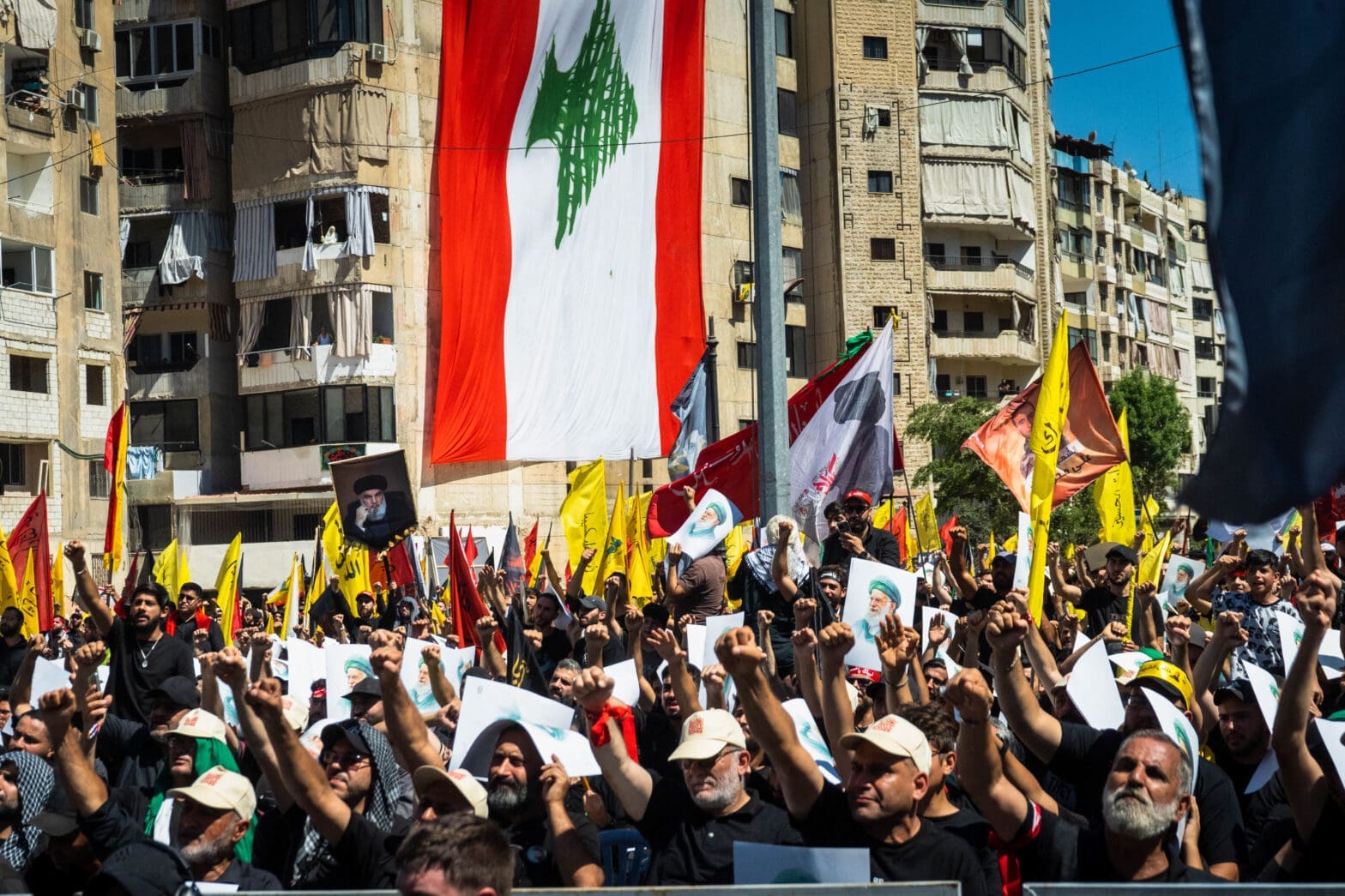











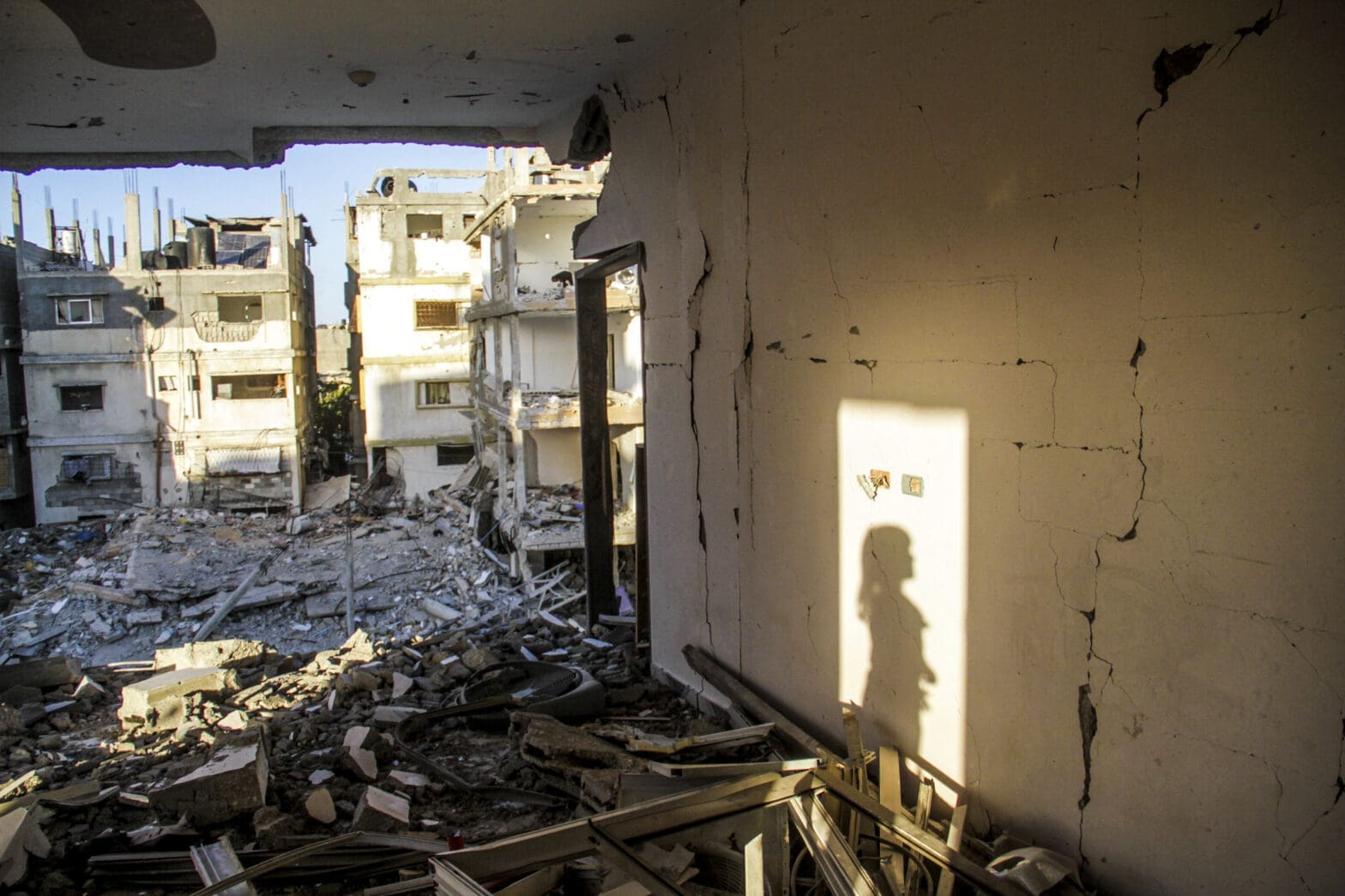
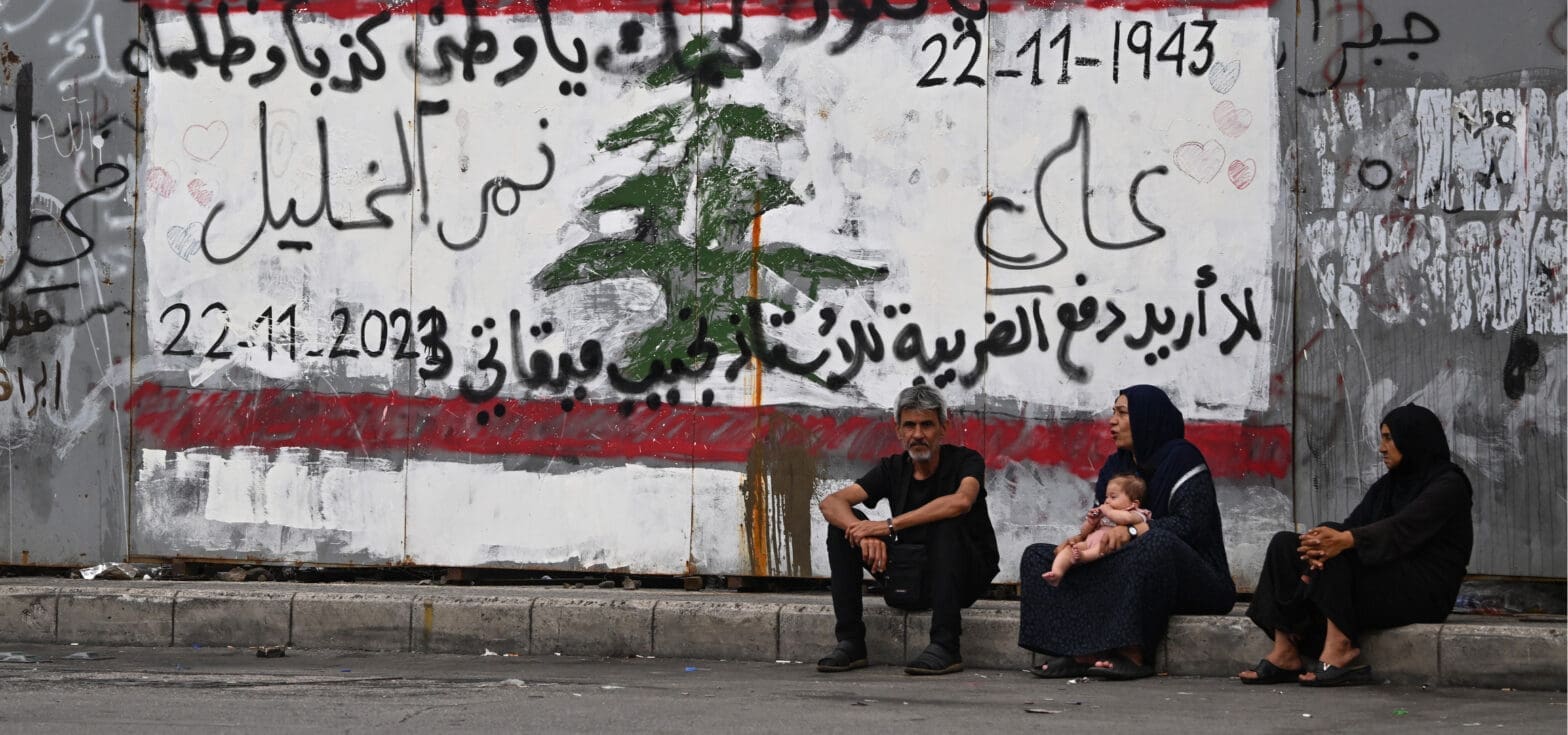

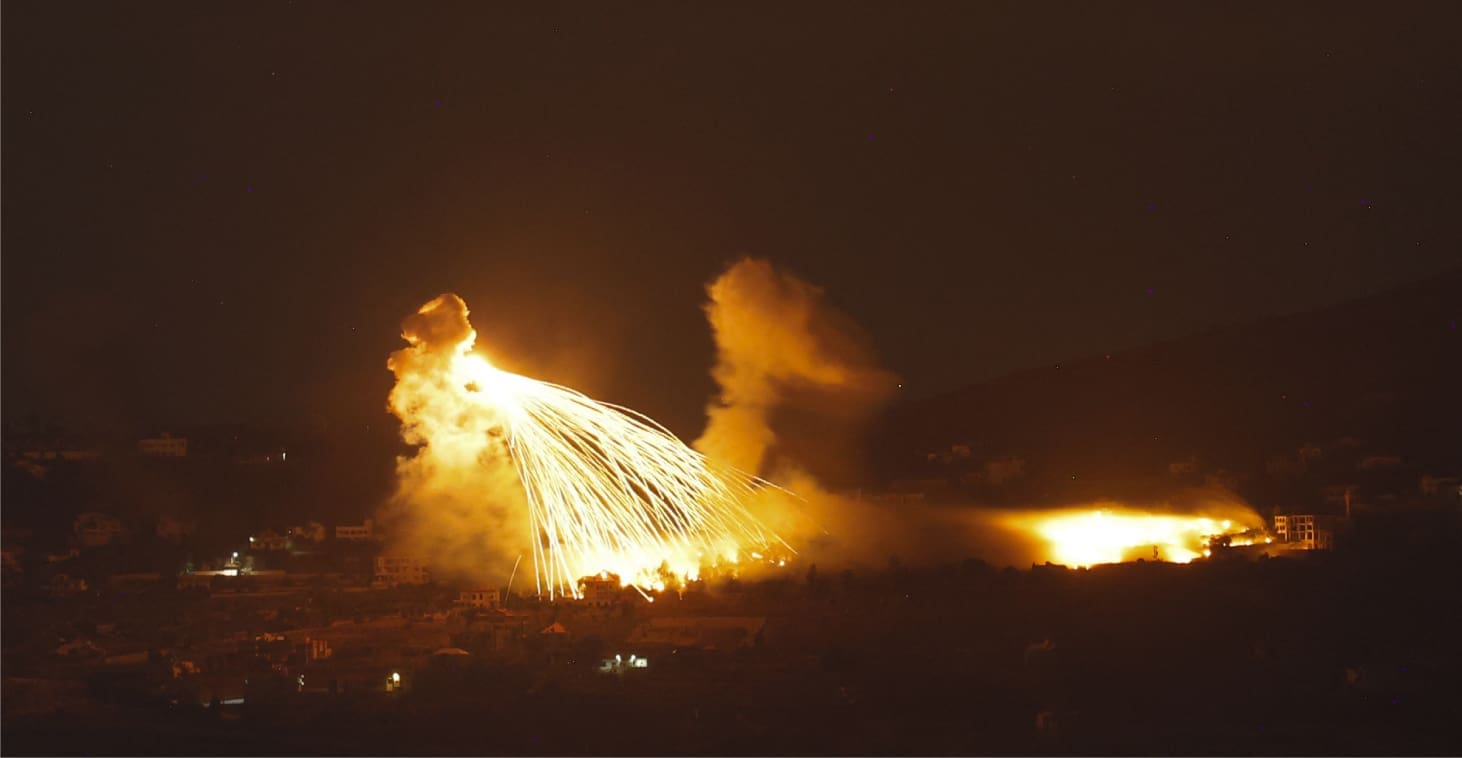



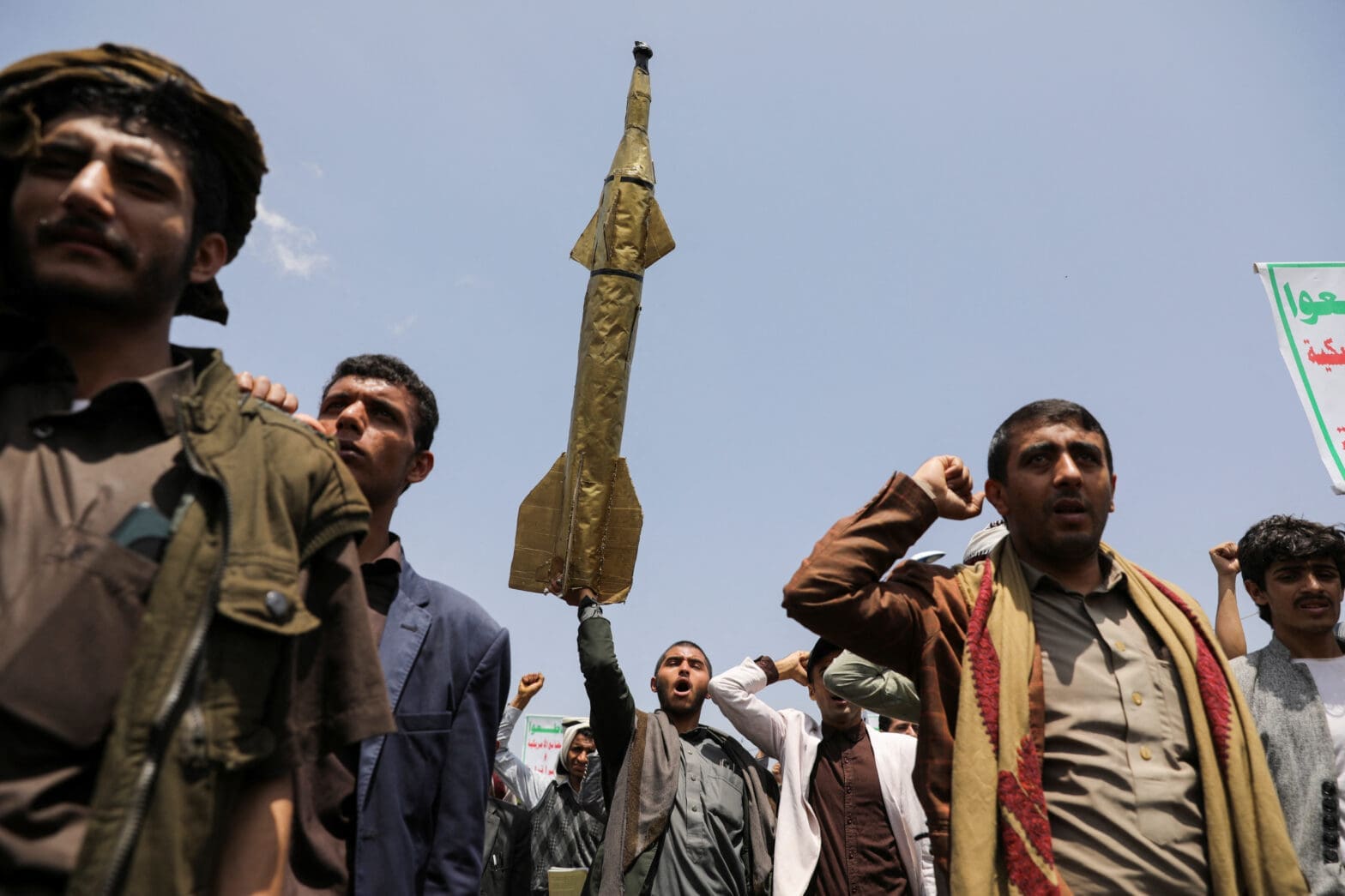
![Smoke billows during Israeli bombardment on the village of Khiam in south Lebanon near the border with Israel on June 19, 2024 amid ongoing cross-border tensions as fighting continues between Israel and Hamas in the Gaza Strip. (Photo by RABIH DAHER / AFP) / The erroneous mention[s] appearing in the metadata of this photo by RABIH DAHER has been modified in AFP systems in the following manner: [June 19] instead of [June 8]. Please immediately remove the erroneous mention[s] from all your online services and delete it (them) from your servers. If you have been authorized by AFP to distribute it (them) to third parties, please ensure that the same actions are carried out by them. Failure to promptly comply with these instructions will entail liability on your part for any continued or post notification usage. Therefore we thank you very much for all your attention and prompt action. We are sorry for the inconvenience this notification may cause and remain at your disposal for any further information you may require.](https://b2798871.smushcdn.com/2798871/wp-content/uploads/2024/08/AFP__20240619__34XG8W8__v9__HighRes__CorrectionTopshotLebanonIsraelPalestinianConfli-1568x1045.jpg?lossy=2&strip=0&webp=1)


